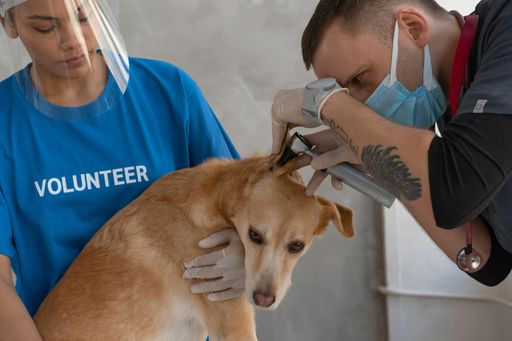Ways to Make Health a Habit
When you bring your new furry friend home from the shelter or adoption center, there are many things that run through your mind. You may wonder how he or she will react to a new environment, what the sleeping arrangements may look like and whether or not an investment in an invisible fence may be in order. While all of these things are certainly pertinent to a successful pet and human relationship, health should be at the top of your list of priorities since it can have a trickle-down effect on our critters. Here are a few health tips to keep in mind as you get to know your fur kid.
Food for Thought
Your pets depend on you to keep their bellies full, and most of the time they will eat what you give them. Sure, it may be easier to buy the cheaper brands of food and throw it into a bowl—but remember that domesticated animals rarely have a choice and cannot adequately express their nutritional needs to you. Providing a nutrient-dense meal is just as important for pets as it is for people. When a dog or cat lacks essential vitamins and minerals, it can have a detrimental effect on the way that they feel - which in turn influences behavior. Talk to your veterinarian or local pet store associate for recommendations, and if possible get your paws on a money-saving Nutra Thrive coupon to take with you (dogs need supplements too!).
Exercise for Fun
If your pet’s diet is fairly consistent, there isn’t likely to be a weight management problem - but they do need plenty of movement in order to stay in good shape. Most dogs love a good game of fetch or tug-of-war, and cats are perfectly happy with a simple ball of fluff for batting around the room. Fitness sessions really so not need to be complicated in order to be effective, so even just a gentle walk can do the trick. What matters is that calories are burned and any pent-up energy is expelled. This will also result in more restful sleep, better food digestion and more comfortable joints.
Emotional Connections
In addition to the hours of fun playtime that can be had with them, pets also give us unconditional love. They become cuddle therapists, are wonderful listeners and often sense when we are feeling down. If you want to deepen that relationship, be sure to offer comfort to them in return. Many cats love to snooze on laps for hours, and many dogs are happy to be a part of conversations. It is important to their emotional health that they receive your attention as often as possible, and to know that their needs are also important to you. The more that you include them in your daily activities, the more they feel like part of the family.
Considering a pet’s unique needs can also help to ward off any potential behavioral issues that may be lurking under the surface. They will feel calmer and more at ease in the home, which often means that the urge for destruction will not manifest as often as it otherwise might. A happy pet makes a happy home!



















